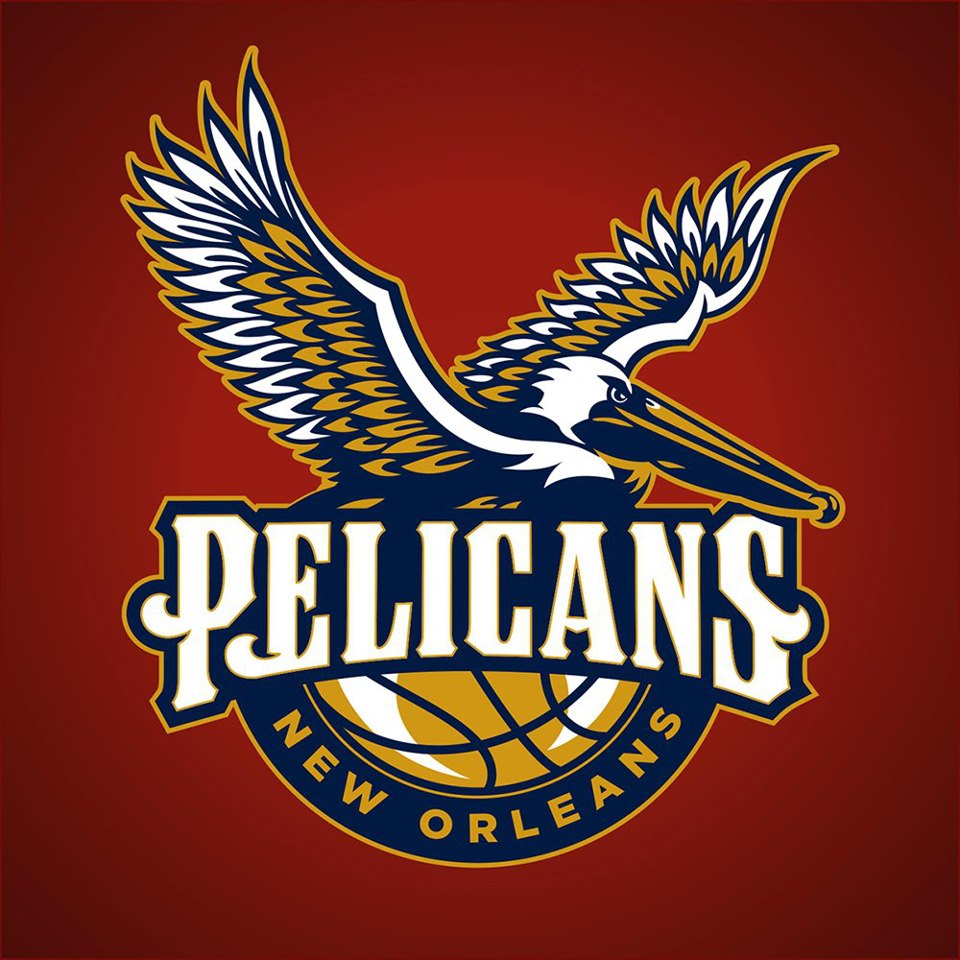In Pelican We Trust
In response to Christopher Yim’s blog post about the rebranding of the New Orlean’s Hornets, I have to agree with the positive effect the re-branding has had on the franchise. By rehauling the failing franchise through a complete restructuring of it’s image and logo, New Orleans has really turned their organization around. Louisiana has always had a strong relation with the pelican bird,  it being the official state bird, as well as it’s nickname “The Pelican State.”
it being the official state bird, as well as it’s nickname “The Pelican State.”  What the franchise succeeded in seeing was that the small market size in New Orleans for professional basketball was not particularly inclined to support their home team when it was called the Hornets. Perhaps a major reason was that the Hornets was not associated with Louisiana at all. It was originally meant to appeal to the Charlotte market, where it has remain associated with since then. On the other hand, when the franchise rebranded it self as the Pelicans, New Orleans and Louisiana state began to rally behind it, not only because it was the home team, because the organization stood for something greater. The Pelican was and always has been an important symbol for the Louisiana people. When Hurricane Katrina hit, as well as the BP oil spill incident, the pelican was one of the animals to receive the most concern. By switching the hornets with the Pelicans, the franchise was able to appeal to the correct target audience of Louisiana state, as well as maintain their support for such a symbolic team and image. With the drafting of new stars such as Anthony Davis, the Pelicans are able to add onto the support they’ve garnered from the logo change with support for an actually well-performing team. With that successful re-branding campaign, the franchise at New Orleans is looking at a steady recovery, both financially and physically.
What the franchise succeeded in seeing was that the small market size in New Orleans for professional basketball was not particularly inclined to support their home team when it was called the Hornets. Perhaps a major reason was that the Hornets was not associated with Louisiana at all. It was originally meant to appeal to the Charlotte market, where it has remain associated with since then. On the other hand, when the franchise rebranded it self as the Pelicans, New Orleans and Louisiana state began to rally behind it, not only because it was the home team, because the organization stood for something greater. The Pelican was and always has been an important symbol for the Louisiana people. When Hurricane Katrina hit, as well as the BP oil spill incident, the pelican was one of the animals to receive the most concern. By switching the hornets with the Pelicans, the franchise was able to appeal to the correct target audience of Louisiana state, as well as maintain their support for such a symbolic team and image. With the drafting of new stars such as Anthony Davis, the Pelicans are able to add onto the support they’ve garnered from the logo change with support for an actually well-performing team. With that successful re-branding campaign, the franchise at New Orleans is looking at a steady recovery, both financially and physically.
 Anthony Davis
Anthony Davis
Link to Christopher Yim’s blog post: https://blogs.ubc.ca/christopheryim/2013/10/10/rebranding-nba-new-orleans-pelicans/

 It is a very instructional blog as well though, because it goes over what we have learned in class – targeting customers, their various demographics, identifying their needs, and seeing things from the consumer’s perspective. He then proceeds to tell us that finding lot’s of different methods to market towards consumer’s is highly recommended, but also advises us to cut out ones that don’t seem viable.
It is a very instructional blog as well though, because it goes over what we have learned in class – targeting customers, their various demographics, identifying their needs, and seeing things from the consumer’s perspective. He then proceeds to tell us that finding lot’s of different methods to market towards consumer’s is highly recommended, but also advises us to cut out ones that don’t seem viable.  He closes the blog with another emphasis on quality. With the right methods and the matching market statistics, we can really target the right market. However, these leads should be constantly improved and refined before being handed off to sales – to ensure it gets approved and implemented quickly. This article really put into perspective of how relevant and applicable Comm 296 is. Virtually everything that Mr. Windels said has been covered so far in our course. Moreover, it also throws into perspective of how applicable social media is to the actual business world. Until now, I had no idea that such a vast majority of marketing leads derived from social media. I had always known it was an important marketing tool, but did not know that it was the starting point for nearly 70% of all leads!
He closes the blog with another emphasis on quality. With the right methods and the matching market statistics, we can really target the right market. However, these leads should be constantly improved and refined before being handed off to sales – to ensure it gets approved and implemented quickly. This article really put into perspective of how relevant and applicable Comm 296 is. Virtually everything that Mr. Windels said has been covered so far in our course. Moreover, it also throws into perspective of how applicable social media is to the actual business world. Until now, I had no idea that such a vast majority of marketing leads derived from social media. I had always known it was an important marketing tool, but did not know that it was the starting point for nearly 70% of all leads!